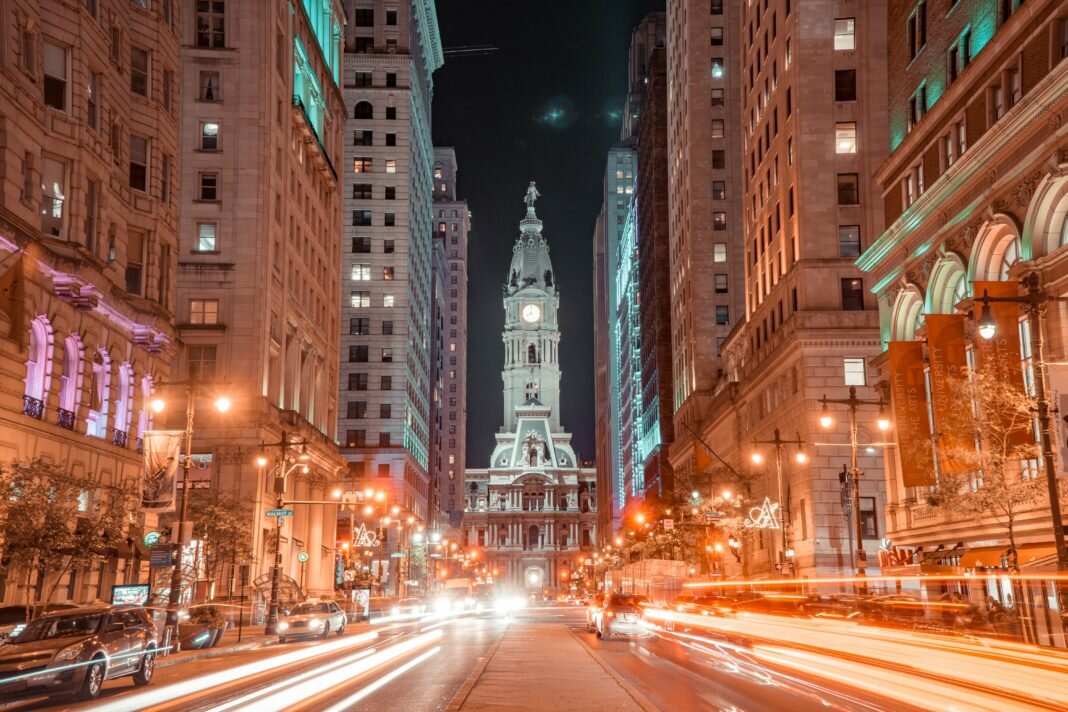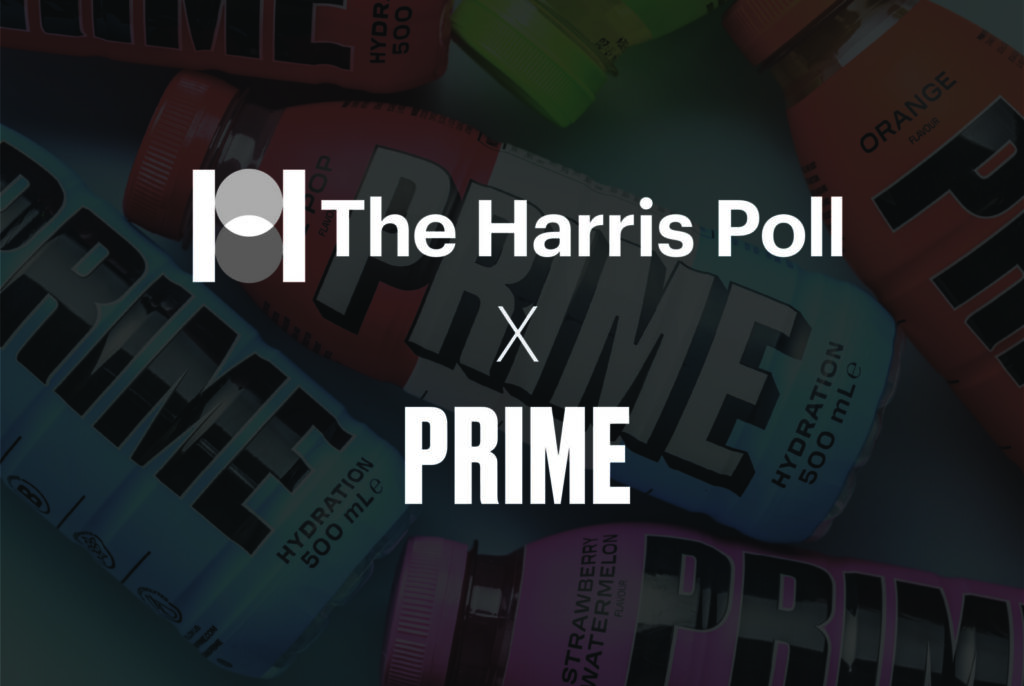Brief • 2 min Read

A recent study by The Harris Poll and the Chicago Council on Global Affairs in November 2020, surveying residents of the Philadelphia metropolitan area on their attitudes about urban and suburban life, reveals that although the pandemic has negatively impacted big city living, residents are still hopeful about the future of their city. Our study reveals that although the pandemic has negatively influenced some aspects of big city living, ultimately, residents are still hopeful about Philly’s future.
Dreaming of Suburbia But Staying Put
The COVID-19 pandemic has had widespread effect on Americans’ everyday lives, especially those that live in urban areas. No longer content with being stuck indoors, many urban dwellers have considered moving to new homes outside the city. Some Philadelphia residents are willing to jump on this trend. Asked hypothetically where they would choose to live if they could live anywhere, nearly half (49%) would choose to live in a suburb while another 19% would prefer to live in a rural area. Still, about a third (32%) would choose to live in a city.
However, when looking at today’s situation, most residents (72%) say that their experience with the pandemic would not make them change where they currently live.*
Assessing Current Government Efforts on Top Issues
Given their desire to stay put, many Philadelphia residents are concerned about local issues. Similar to those living in other metropolitan areas across the country, top concerns about their city include COVID-19 (58%), taxes and fees (38%), the economy (31%), and public safety (30%).
Faith in Philly’s leaders
Overall, residents believe in their local leadership’s capability to govern better than higher levels of government, especially when compared to national government. Most residents agree that their city’s elected leaders are more capable of governing than Congress (69%). In fact, they agree on this sentiment more than any other metro area surveyed. This may be, in part, because most residents do not think their city’s elected leaders play politics more than Congress (60%).
Support for local leadership is reinforced by the fact that residents also agree their city elected officials are more capable of governing than the President (61%) and state elected officials (53%).** Again, part of this is likely due to the fact that they do not think their city’s elected officials play politics more often than the President (49%) and state-elected officials (47%).
When it comes to fundamental needs, the majority of Philly residents (77%) agree that standard services in their city, such as sanitation, fire protection, and public transit, are sufficiently provided. However, on approval of larger city issues, residents are more divided on local leadership performance.
When assessing current confidence in local leadership, few residents said they were very or extremely confident in their mayor’s ability to respond effectively to the COVID-19 pandemic (36%), climate change (35%), affordable housing (33%), and recent protests about racism and policing (33%).*** How truly effective residents think the mayor and other local officials have been at handling such issues varies.
Effectiveness with the pandemic
Overall, Philadelphia residents appear fairly divided on how effective leadership has been at handling the COVID-19 pandemic. Just under half of all city residents say that their mayor (47%) and other county or regional officials (40%) have been very or extremely effective at addressing the pandemic. However, they show more approval for state leadership; more than half of residents (58%) say the same about their governor’s effectiveness.****
This may explain why, when given the option between national, state, and city elected officials and the private sector, just 11% of all residents would prefer that city-elected officials take the lead on responding to COVID-19. Twice as many residents would prefer state elected officials to take the lead, and nearly five times as many would prefer nationally elected leaders lead regarding the pandemic.
Keeping the city affordable
With more than a third of Philly residents saying they are most concerned about financial well-being in the area, it’s natural that they would also express concern about the area’s economic inequality, cost of living, and affordable housing. The city still has a long way to go in resolving these concerns, perhaps explaining why residents are divided on how successful government leadership has been at addressing these issues.
This division in local approval starts with economic inequality, an issues one in five residents (21%) say is a primary concern for them. Just under half of all residents agree that their mayor (48%) and other county or regional officials (47%) have been effective at addressing the issue. They feel similarly about their governor’s efforts, too (50%).
Philly residents also show great concern about their standard of living. Nearly two-thirds of all residents (62%) consider the affordability of housing in their city to be very or extremely important, and currently, most residents see their mayor (62%) and other county or regional officials (53%) as having been effective at addressing affordable housing. However, only a third of all residents (33%) are very or extremely confident in their mayor’s ability to keep housing affordable.
Moreover, about half of all residents (48%) still do not think their city has enough affordable housing options. The overwhelming majority of this group (90%) support the creation of additional affordable housing options in their city. Of these supporters, another 81% support the creation of additional affordable housing options in their own neighborhoods.
With much left to be done in the eyes of many residents, those living in Philly are still divided on who they would like to take the lead on addressing affordable housing: 35% would prefer state elected officials, 25% city elected officials, and 22% national elected officials. Perhaps surprisingly, another 18% would prefer to bypass the government altogether and have the private sector take the lead.
With the pandemic exposing consequences of stark economic inequality across American cities, building upon current affordable housing efforts will go a long way in improving equity concerns in the area.
Repairing and race and public safety relations
Throughout — and certainly before — 2020, Philadelphia has been no stranger to clashes and controversy between law enforcement and residents of color. About one in three currently say that public safety and racial equity are primary concerns for them. This environment and underlying concerns combined with the death of George Floyd in May 2020 made Philadelphia one of many breeding grounds for protests related to police maltreatment and social justice during the summer of 2020.
With these protests has also come an inevitable concern about local social unrest. Philly residents are equally divided on their concern about social unrest in their city, and of those concerned, 55% are also concerned about unrest in their own neighborhoods.
Despite this concern, nearly two-thirds of all Philadelphia area residents claim to support the Black Lives Matter movement (65%). Additionally, although only a third of residents are very or extremely confident in their mayor’s ability to respond to protests about racism and policing, twice that number say that, so far, their mayor (65%) and their city’s police department (66%) have been effective at addressing protests over racism and policing.
Even with this general approval of local leadership efforts, similar to other major metros surveyed, the largest plurality of residents would actually prefer nationally elected officials take the lead on handling protests over racism and policing (31%); this is followed by state elected officials (29%). That said, compared to nearly two-thirds of those who find local and state leadership effective at handling protests, just a third feel the federal government has been effective regarding these protests. In fact, Philly residents give the lowest effectiveness ratings to the federal government on this issue compared to residents in all other metros surveyed. Consequently, reliance on local leadership currently remains the best way to improve police-resident relations in Philadelphia.
An Eco-Friendly Philly
Evaluating local government efforts
The well-being of the environment and human-influenced climate change are important issues for those living in and around highly-populated areas. The same is true for those living in Philadelphia with most residents (54%) saying cities should be doing more to combat climate change. In fact, a quarter of area residents (25%) say they are most concerned about the environment and climate change in their own city.
Philly area residents vary in their assessment of how their local government has handled climate change so far. About half of all residents say their city’s parks and recreation department (53%), their mayor (49%), and other county and regional officials (46%) have been at least somewhat effective at addressing climate change. They also exhibit similar sentiment regarding their state governor (48%).
However, even though only a third of all residents see federal government as effectively handling climate change, nearly half of all Philly residents (45%) would still prefer that national elected officials take the lead on this issue. Only 10% would prefer city elected officials take the lead.
Pursuing local solutions
Advocates working to curb the effects of human-influenced climate change have often proposed local transportation alternatives as one solution to climate change. Large cities like Philadelphia, where residents regularly use different types of transportation, are perfect areas for experimenting with such solutions. For example, employees are often the most frequent users of private and public transportation. Encouraging this group to embrace alternative or public transportation more often would be effective at reducing local pollution.
Many Philadelphia residents also seem open to such alternatives. When employed residents were asked which types of transportation alternatives they would be willing to consider for work commutes, most were willing to consider public transit (58%) and electric scooters (54%).
Fewer residents, though, were open to bicycles, either manual or electric (46%). Those less interested in this option cite that the distance to work is too far (45%) yielding too much time spend in transit (30%). They also cite traffic and personal safety concerns (32% and 30%, respectively).
Even with their moderate interest in transportation alternatives, Philadelphia residents still want to make sure infrastructure is in place for these alternatives alongside continued investments in infrastructure for private vehicles. Eighty-two percent support additional infrastructure for bicycles and other very small vehicles while construction of widened roads (76%) and additional highways (55%) also receive support from most residents.
Going further with going green
In addition, with large cities around the world pushing for and implementing strategies to mitigate human-influenced climate change, cities like Philadelphia have the opportunity to collaborate with them on such goals. In fact, most Philly residents support such action with 92% saying it’s at least somewhat important that their city engage internationally with other cities and governments to address climate change. Nearly three in five (57%) say it’s very or extremely important that their city do so.
Addressing Immigration
Perspectives on international collaboration extend to other global issues such as immigration, an important issue for large cities like Philadelphia. Although immigration policies are still dictated by the federal government, some large American cities have become known as sanctuary cities because of their more forgiving approach to immigrants compared to the federal government.
Although Philadelphia does not consider itself a “sanctuary city,” it does officially define itself as a “Welcoming City.” This means that city does not allow its employees, including police officers, to ask about the documentation status of people they encounter. However, the city will still support and collaborate with federal law enforcement and follow judicial orders and warrants.
With an awareness of a growing global refugee crisis and an increase in people desiring to come to the U.S., Philadelphia is also aware of its role in resettling immigrants. Its current residents also think the city should go beyond domestic protocols and engage internationally in the immigration conversation. In fact, 80% say it is at least somewhat important that their city engage internationally and with other cities and governments on immigration. More than half (54%) say it is very or extremely important for Philadelphia to do so.
A Post-Pandemic Future
Like other metropolitan areas, Philadelphia has dealt with several setbacks related to the pandemic. Even so, research among Philly residents shows that the pandemic has not completely ruined the value of big city living the way some thought leaders have claimed. COVID-19 outbreaks may have encouraged many residents to move to or remain in less populated areas, but overall, residents are still invested in the overall well-being of their city. They realize that there is still much to be done to recover from the pandemic, provide economic stability and mobility, promote equal racial treatment, and ensure a sustainable future for their city, and they are watching how their leaders approach such issues. With overall faith in city leaders to govern and resident willingness to embrace alternatives that improve urban living — like other American cities — the future of Philadelphia as it emerges from the pandemic will be bright.
*Note, self-defined urban level for Philadelphia metropolitan area residents in this study is as follows: 22% central city or downtown, 30% inner suburb, 36% outer suburb or exurb, and 12% rural.
**The U.S. president at the time of this study was Donald Trump.
***The Philadelphia mayor at the time of this study was James Kenney.
****The Pennsylvania governor at the time of this study was Tom Wolf.
Methodology
This survey was conducted online within the United States between November 5, 2020, and November 16, 2020, among 1,200 adults (aged 18 and over) by The Harris Poll on behalf of the Chicago Council on Global Affairs. The respondents surveyed were evenly divided among six U.S. metropolitan regions: New York City, Los Angeles, Chicago, Houston, Philadelphia, and Phoenix. Respondents self-identified the community type (i.e., central city/downtown, inner suburb, outer suburb/exurb, and rural) in which they lived. Figures for age, sex, race/ethnicity, education, region, and household income were weighted where necessary to bring them into line with their actual proportions in the population. Propensity score weighting was used to adjust for respondents’ propensity to be online.
All sample surveys and polls, whether they use probability sampling, are subject to multiple sources of error which are most often not possible to quantify or estimate, including sampling error, coverage error, error associated with nonresponse, error associated with question wording and response options, and post-survey weighting and adjustments. Therefore, the words “margin of error” are avoided as they are misleading. All that can be calculated are different possible sampling errors with different probabilities for pure, unweighted, random samples with 100% response rates. These are only theoretical because no published polls come close to this ideal.
Respondents for this survey were selected from among those who have agreed to participate in our surveys. The data have been weighted to reflect the composition of the adult population of each metropolitan area. Because the sample is based on those who agreed to participate in the online panel, no estimates of theoretical sampling error can be calculated.
Responses in this survey were tested for statistical significance using a Z-test with a confidence level of 95% and a Z-test with a confidence level of 90%. For more information on methodology, please contact Dami Rosanwo.
To explore more insights from our Future of Cities research, click here.
Subscribe for more Insights
Subscribe to our newsletter for the latest trends in business, politics, culture, and more.
Download the Data
Get the full data tabs for this survey conducted online within the United States by The Harris Poll on behalf of Chicago Council on Global Affairs between November 5-16, 2020, among 1,200 U.S. adults ages 18 and older.
Download
Subscribe for more Insights
Subscribe to our newsletter for the latest trends in business, politics, culture, and more.
Download the Data
Get the full data tabs for this survey conducted online within the United States by The Harris Poll on behalf of Chicago Council on Global Affairs between November 5-16, 2020, among 1,200 U.S. adults ages 18 and older.
DownloadRelated Content








